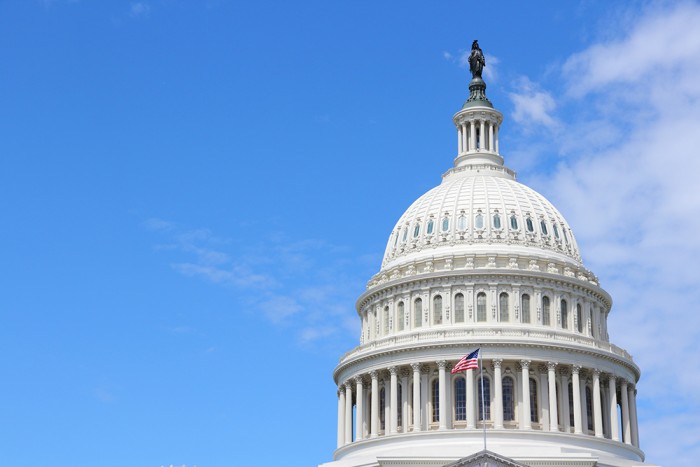Advocacy
Request for Your Support for the RCPA PAC
The Rehabilitation and Community Providers Association Political Action Committee (RCPA PAC) is asking members to consider making a personal contribution to the PAC. With these donations, we have been successful in supporting legislative leadership who understand the severe challenges facing many of our providers. These representatives are willing to stand up for our issues as we fight to move Pennsylvania forward.
We urge you to view our 2025 Legislative & Administrative Priorities to see how RCPA is and will continue to work for you. We are able to achieve these goals thanks to our members’ dedication and contributions.
Make an online contribution and advocate for yourself today. While the request is voluntary, we encourage you to make a contribution of $100, $250, $350, $500, or more to the RCPA PAC. If you are interested, you can also consider making a recurring monthly donation.
If you have any questions regarding the RCPA PAC or making a donation, please contact Jack Phillips, Director, Government Affairs.
Outreach to Your Members of Congress is Needed: A Message From ANCOR
Dear ANCOR Members,
Next week, some Members of Congress will be back in their districts, making it the perfect time to meet with them and urge them to protect Medicaid funding for home and community-based services (HCBS).
The newly released House budget framework calls for 1.5 trillion in cuts over ten years and directs the House committee with jurisdiction over Medicaid to cut at least $880 billion in spending. While the details have not yet been finalized, these reductions would likely result in deep cuts to Medicaid funding. Even if proposals do not specifically target funding for I/DD services, the resulting pressure on state budgets from Medicaid cuts creates an elevated risk of further limits and cuts to services for individuals with I/DD. In-district meetings and site visits are some of the most effective ways to educate lawmakers and their staff on how these cuts would harm people with intellectual and developmental disabilities (I/DD), providers, and families.
To help you prepare, we’ve put together key advocacy resources, including:
- Medicaid Cuts Fact Sheet – Key talking points on how federal Medicaid cuts shift costs to states and harm disability services.
- ANCOR Medicaid Resource Center – Data and tools to support your advocacy efforts.
- In-District Meeting & Site Visit Tool – Tips, sample meeting requests, and scripts for engaging your lawmakers.
Why Your Action Matters:
Studies show that constituent messages are the most effective way to influence lawmakers. When they see firsthand the impact of Medicaid-funded services in their communities, they are far more likely to protect funding.
Take this opportunity to reach out to your Members of Congress while they’re home next week or check their website for an email list signup to make sure you don’t miss any opportunities to engage while they are home — let’s make sure they understand why Medicaid funding must be protected.
Thank you for your advocacy.
ANCOR Announces New Medicaid Resource Center
Message from ANCOR:
ANCOR shares their new Medicaid Resource Center for targeted resources to aid in your education and advocacy efforts! Let’s work together to protect Medicaid funding from potential cuts!
The Medicaid Resource Center is a central location where you can find the most up-to-date information and resources. Included in the Medicaid Resource Center is a video Intro to I/DD Services, ANCOR’S most recent fact sheet Cuts to Medicaid Harm Disability Services, as well as highlighted reports and white papers on Medicaid trends and impacts of community-based services. In addition to the Advocacy Toolkit and the ANCOR Amplifier, please use these targeted resources available in the new Medicaid Resource Center to aid in your advocacy.
As a reminder, you can also still take our action alert urging your Senators and Representatives to reject any proposals that reduce federal Medicaid funding! Thank you and please do not hesitate to reach out if they can help in your outreach!
Lydia Dawson, JD
ANCOR | Vice President of Government Relations
571-932-5375
Request for Your Support for the RCPA PAC
The Rehabilitation and Community Providers Association Political Action Committee (RCPA PAC) is asking members to consider making a personal contribution to the PAC. With these donations, we have been successful in supporting legislative leadership who understand the severe challenges facing many of our providers. These representatives are willing to stand up for our issues as we fight to move Pennsylvania forward.
We urge you to view our 2025 Legislative & Administrative Priorities to see how RCPA is and will continue to work for you. We are able to achieve these goals thanks to our members’ dedication and contributions.
Make an online contribution and advocate for yourself today. While the request is voluntary, we encourage you to make a contribution of $100, $250, $350, $500, or more to the RCPA PAC. If you are interested, you can also consider making a recurring monthly donation.
If you have any questions regarding the RCPA PAC or making a donation, please contact Jack Phillips, Director, Government Affairs.
Internet Safety for Self-Advocates Training Announced
The Office of Developmental Programs (ODP) has shared an important online training that is being offered through the Western Region Health Care Quality Unit (HCQU) called “Internet Safety for Self-Advocates.”
This online training was developed for both those we support and their supporters. An overview of internet safety is reviewed and discussed. Different topics each week range from social media to dating sites to pornography use and even scams. Various safety skills are reviewed, and tips are provided on using the internet more wisely and safely.
There will be six sessions.
Who is expected to attend?
Self-advocates can attend privately or can have a support person with them.
Training Dates:
- Tuesday, January 7, 2025, 10:00 am – 11:00 am
- Tuesday, January 21, 2025, 10:00 am – 11:00 am
- Tuesday, February 4, 2025, 10:00 am – 11:00 am
- Tuesday, February 18, 2025, 10:00 am – 11:00 am
- Tuesday, March 4, 2025, 10:00 am – 11:00 am
- Tuesday, March 18, 2025, 10:00 am – 11:00 am
To enroll, please call 724-283-0990.
TBI Act Included in Congress’s Proposed Year-End Package: Contact Legislators to Support
RCPA received notification today from the Brain Injury Association of America (BIAA) and the National Association of State Head Injury Administrators (NASHIA) that the Traumatic Brain Injury (TBI) Act was included in Congress’s proposed year-end package. Key provisions included in this bill include:
Administration for Community Living (ACL)
- Reauthorizes the State Partnership Program and Protection & Advocacy Program.
- Allows grants to be used to support systems of care for people of any type of acquired brain injury.
- Allows a state to request a waiver of the match requirement if they cannot meet the match to carry out the grant purposes. The match decrease can only be for that fiscal year, and states must maintain at least the match that they have had during the previous fiscal year.
- Requires ACL in awarding State Partnership Program grants to take into consideration populations that may be at higher risk for brain injury.
Centers for Disease Control and Prevention (CDC)
- Reauthorizes the CDC’s TBI Programs, including the National Concussion Surveillance System.
- Renames the TBI Program to honor Congressman Bill Pascrell.
- Requires an examination of brain injury as a chronic condition that may impact someone across the lifespan. CDC plans to accomplish this through work with the National Academies of Science, Engineering, and Medicine.
- Requires CDC to review those who may have higher impact of brain injury, including due to their occupation and from interpersonal violence.
RCPA encourages providers, staff, and families to reach out to their members of Congress through email or phone call by COB Thursday, December 19, 2024. The message can be simple. For example:
As a constituent, I encourage you to support the year-end continuing resolution, which includes the TBI Act. The TBI Act is pivotal to create systems of care for people of brain injury. [Feel free to share any personal impact] Thank you for your support of this important bill.
In Pennsylvania, our current state Senators are:
Casey, Robert P., Jr. and
Fetterman, John
Additional information for contacting your Senators can be found here.
Now Is the Time to Take Action on the SCO Bill
A message from our national partner ANCOR:
As you know, Congress is winding down, and we only have a few more opportunities to pass the legislation to help create a standard occupational classification for DSPs. We are so close to getting this bill across the finish line–it has passed in the Senate and has also passed in House Education and Workforce Committee. The final stop is passage in the full House of Representatives.
Please help us in reaching out to your Representative and ask them to support the Recognizing the Role of Direct Support Professionals. You can use our action alert to send that message.
We especially ask that you reach out if you have any connections with House leadership offices: Speaker Johnson, Leader Jeffries, Rep. Scalise, or Rep. Emmer. The message to those offices is to put the bill on the calendar for a vote next week.
Thank you so much for all you do and for your strong advocacy efforts. If you have any questions, please do not hesitate to reach out.
Thanks!
Elise Aguilar
Senior Director of Federal Relations
American Network of Community Options and Resources
Alexandria, VA
(703) 535-7850
My Body, My Choice: Recognizing and Respecting the Body Autonomy of People With IDD — Relias Webinar Dec. 5
My Body, My Choice: Recognizing and Respecting the Body Autonomy of People With IDD
Thursday, December 5, 2024
2:00 pm ET
Register Here
People with intellectual and developmental disabilities (IDD) have the right to lead healthy, fulfilling lives within their chosen communities. This includes expressing their sexuality safely and being able to access sexuality education on topics of choice.
Join Relias December 5 at 2:00 pm ET as they explore the importance of recognizing and respecting the body autonomy of people with IDD.
Learning objectives
- Explore the concepts of body autonomy, ways to support and respect the body, and the significance of supporting the rights of people with disabilities.
- Develop the skills to create and sustain safe spaces that empower individuals with IDD to openly discuss their bodies.
- Discover effective strategies to empower individuals with disabilities to advocate for their rights and establish personal boundaries.














